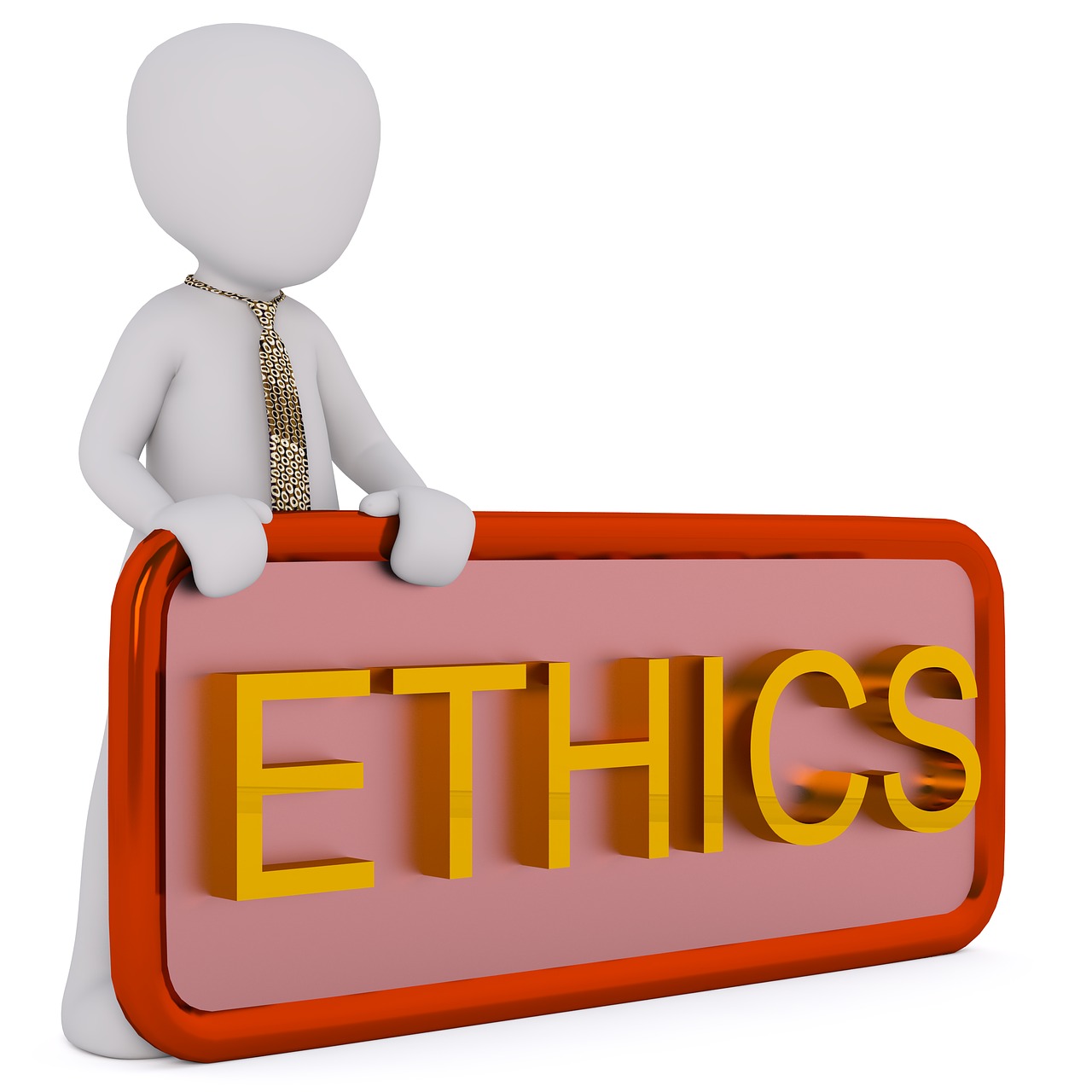Are lawyers ethical when it comes to car accidents? This is a question that often lingers in the minds of those who have been involved in a collision. In this article, we aim to shed light on this topic and provide you with valuable insights. As a lawyer who specializes in business law in Utah, we understand the importance of ethics in the legal profession. We will explore the ethical considerations that lawyers face when handling car accident cases, ensuring that by the end of this article, you will have a clear understanding of the ethical implications involved. So, grab a cup of coffee and let’s dive into the world of car accidents and legal ethics!

Overview of Car Accidents and Lawyers
Car accidents are unfortunately common occurrences that can result in physical injuries, property damage, and emotional distress. When involved in a car accident, it is crucial to understand the basics of the legal aspects surrounding such incidents. This includes knowing the role of car accident lawyers and how they can provide essential assistance in navigating the complex legal process and protecting your rights.
Understanding the Basics of Car Accidents
Car accidents can happen due to various factors such as distracted driving, speeding, drunk driving, or adverse weather conditions. In the aftermath of an accident, it is crucial to prioritize your safety and seek medical attention if needed. Additionally, collecting evidence such as photographs, witness statements, and police reports can significantly support your case.
What Do Car Accident Lawyers Do?
Car accident lawyers specialize in providing legal representation to individuals who have been involved in car accidents. These professionals possess in-depth knowledge of personal injury law and have extensive experience in handling car accident cases. Their primary role is to protect your legal rights, negotiate with insurance companies, and ensure that you receive fair compensation for your injuries, medical expenses, and other damages.
Importance of Legal Representation in Car Accident Cases
Seeking legal representation from a car accident lawyer is vital for several reasons. Firstly, they have a thorough understanding of the legal system and can guide you through the complex procedures, paperwork, and deadlines involved in your case. Furthermore, an experienced lawyer can gather and analyze evidence, interview witnesses, and build a strong case on your behalf. By having competent legal representation, you significantly increase your chances of obtaining a favorable outcome and receiving the compensation you deserve.
Ethics in the Legal Profession
The legal profession operates under a strict code of ethics that governs the conduct of lawyers. These ethical guidelines are designed to ensure that lawyers uphold the integrity of the profession and act in the best interests of their clients.
Code of Ethics for Lawyers
Lawyers are expected to adhere to a code of ethics that outlines their professional responsibilities. This code typically includes principles such as integrity, competence, loyalty, confidentiality, and zealous advocacy for their clients. By abiding by these standards, lawyers demonstrate their commitment to upholding the highest ethical standards in their practice.
Ethical Duties towards Clients
One of the most fundamental ethical duties of car accident lawyers is their duty towards their clients. This duty involves acting in a manner that always prioritizes the client’s best interests. Lawyers are obligated to provide competent legal advice, keep their clients informed about the progress of their case, and maintain regular communication to ensure their clients are well-informed and involved in decision-making.
Conflicts of Interest and Professional Responsibility
Lawyers are ethically required to avoid conflicts of interest and prioritize their clients’ interests above their own. Conflicts of interest can arise when a lawyer’s personal or financial interests potentially compromise their ability to provide unbiased and diligent representation. Professional responsibility demands that lawyers identify and navigate these conflicts diligently, ensuring the client’s best interests are always prioritized.
Evaluating the Ethics of Car Accident Lawyers
While most car accident lawyers adhere to high ethical standards, there are instances where unethical practices may occur. It is essential to be aware of potential ethical issues that can arise and evaluate the ethics of a car accident lawyer before choosing representation.
Unethical Practices in Car Accident Cases
Unethical practices in car accident cases can vary and may include issues such as overcharging clients, lack of communication, withholding information, misrepresentation of facts, or conflicts of interest. These practices undermine trust and can significantly impact the outcome of a case. It is crucial to be vigilant and avoid lawyers who engage in such unethical behavior.
Common Ethical Dilemmas for Car Accident Lawyers
Car accident lawyers often encounter ethical dilemmas while representing their clients. These dilemmas can include striking a balance between zealous advocacy for the client and maintaining professional ethics, dealing with uncooperative clients, or resolving conflicts of interest. Ethical car accident lawyers navigate these dilemmas with their clients’ best interests in mind, always adhering to the ethical obligations of the legal profession.
Factors That Can Affect Ethical Conduct
Several factors can influence a lawyer’s ethical conduct in car accident cases. These include their personal values, experience level, workload, pressure to secure favorable outcomes, and adherence to professional standards. Clients must choose lawyers who prioritize ethical conduct and have a track record of upholding the highest ethical standards.
Benefits of Hiring Ethical Car Accident Lawyers
Hiring ethical car accident lawyers brings several advantages that can greatly benefit clients in their pursuit of justice and fair compensation.
Protection of Client’s Rights and Interests
Ethical car accident lawyers are committed to protecting their clients’ rights and interests throughout the legal process. They ensure that clients are treated fairly and advocate for the maximum compensation they are entitled to. By upholding the principles of justice and fairness, ethical lawyers work tirelessly to secure the best possible outcome for their clients.
Trust and Confidentiality
Engaging an ethical car accident lawyer allows clients to establish a relationship built on trust and confidentiality. Ethical lawyers understand the importance of maintaining client confidentiality and provide a safe space for clients to share sensitive information without fear of breach or exploitation. This trust serves as a foundation for effective communication and collaboration between lawyer and client.
Fair Representation and Avoidance of Exploitation
Ethical car accident lawyers prioritize fair representation and avoid exploiting their clients for personal gain. They provide honest assessments of the strengths and weaknesses of a case, including the potential risks and challenges. By steering clear of exploitative practices, ethical lawyers ensure that clients are fully informed and can make well-informed decisions about their legal options.

How to Ensure the Ethical Conduct of a Car Accident Lawyer
To ensure the ethical conduct of a car accident lawyer, it is essential to undertake careful consideration and evaluation before choosing legal representation.
Checking Credentials and Reputation
Before hiring a car accident lawyer, thoroughly research their credentials and reputation. Look for lawyers who are licensed to practice law in your jurisdiction and have experience handling car accident cases. Online reviews, testimonials, and referrals from trusted sources can provide valuable insights into a lawyer’s reputation and ethical conduct.
Assessing Communication and Transparency
Effective communication and transparency are vital factors in evaluating a car accident lawyer’s ethical conduct. During initial consultations, assess the lawyer’s willingness to answer questions, provide clear explanations, and maintain open lines of communication. Lawyers who prioritize clear communication and transparency are more likely to uphold ethical standards throughout the legal process.
Understanding Fee Structures and Agreements
Understanding the fee structure and agreements is crucial in ensuring ethical conduct from a car accident lawyer. Discuss fee arrangements and ensure that they are fair, transparent, and clearly documented in a signed agreement. Ethical lawyers are open about their fees, ensure clients understand payment terms, and avoid any hidden charges or overly burdensome financial obligations.
Handling Ethical Challenges in Car Accident Cases
Ethical challenges are not uncommon in car accident cases. However, ethical car accident lawyers are equipped to navigate these challenges diligently, always keeping their clients’ interests at the forefront.
Addressing Potential Conflicts of Interest
Addressing potential conflicts of interest is a vital ethical obligation for car accident lawyers. When representing multiple clients involved in the same accident or having personal relationships that may compromise the lawyer’s ability to provide unbiased representation, ethical lawyers take proactive steps to mitigate the conflicts. They prioritize their clients’ interests and avoid situations where conflicts may arise.
Maintaining Client Confidentiality
Maintaining client confidentiality is of utmost importance in ethical legal practice. Car accident lawyers must take necessary measures to ensure that any information shared by their clients remains confidential. Ethical lawyers implement strict privacy protocols and diligently protect sensitive client information to prevent unauthorized disclosure.
Adhering to Ethical Guidelines in Settlement Negotiations
Settlement negotiations can present ethical challenges for car accident lawyers. Ethical lawyers navigate these negotiations with integrity, ensuring that their clients’ best interests are always the priority. They avoid engaging in deceptive tactics or misrepresentation of facts during negotiations, pursuing fair and just settlements for their clients.
Ethical Obligations during Litigation Process
Throughout the litigation process, ethical car accident lawyers uphold their ethical obligations to ensure a fair and just resolution for their clients.
Preparing for Trial and Courtroom Conduct
Ethical car accident lawyers diligently prepare for trial, gathering evidence, and ensuring they are well-versed in the relevant laws and regulations. In courtrooms, they conduct themselves with professionalism, integrity, and respect for the judicial process. Ethical lawyers present their arguments honestly and do not engage in any unethical tactics that may compromise the integrity of the trial.
Truthfulness and Integrity in Legal Arguments
Ethical car accident lawyers adhere to the principles of truthfulness and integrity in their legal arguments. They present facts accurately, avoid misleading statements, and strive to provide a comprehensive and honest representation of their clients’ cases. By maintaining truthfulness and integrity, ethical lawyers uphold the principles of fairness and justice.
Avoiding Unethical Tactics or Misrepresentation
Car accident lawyers have an ethical obligation to avoid engaging in unethical tactics or misrepresentation of facts. They present evidence truthfully, avoid exaggerations, and refrain from misleading the court or opposing parties. Ethical lawyers recognize that the pursuit of justice should never involve compromising their professional integrity.
Accountability and Disciplinary Actions
Accountability in the legal profession is crucial to uphold ethical standards and safeguard the interests of clients. Disciplinary measures are implemented to address ethical breaches and ensure that lawyers who violate ethical guidelines face consequences for their actions.
Enforcement of Ethical Rules for Lawyers
Ethical rules for lawyers are enforced by professional regulatory bodies or bar associations. These organizations have established mechanisms to receive and investigate complaints against lawyers. Upon substantiation of unethical conduct, disciplinary actions may be taken, ranging from warnings and fines to the suspension or revocation of a lawyer’s license to practice law.
Types of Disciplinary Measures
Disciplinary measures for ethical breaches can range from mild to severe, depending on the gravity of the violation. These measures may include private or public reprimands, probation, fines, mandatory ethics training, suspension, or disbarment from practicing law.
Consequences of Ethical Breaches
Ethical breaches can have significant consequences for car accident lawyers. Apart from the disciplinary measures imposed by regulatory bodies, ethical breaches can damage a lawyer’s reputation, negatively impact their career prospects, and erode trust with clients and colleagues. As such, upholding ethical standards is crucial for a lawyer’s professional success and continued practice.

The Role of Legal Ethics in Justice System
Legal ethics play a vital role in the justice system, ensuring fairness, equality, and the integrity of the legal profession.
Promoting Fairness and Equality
Legal ethics promote fairness and equality by establishing standards of conduct that lawyers must adhere to. Ethical conduct ensures that all parties involved in the legal process are treated equitably, irrespective of their socioeconomic status or background. By upholding ethical principles, lawyers contribute to a more just and fair justice system.
Preserving Public Confidence in Legal Profession
A strong ethical foundation in the legal profession is essential to preserve public confidence and trust. When lawyers display high ethical standards, it reassures the public that they can depend on the legal system for fair representation and justice. Upholding ethical conduct helps maintain the credibility and integrity of the legal profession.
Maintaining the Integrity of Judicial Process
Ethical lawyers play a critical role in maintaining the integrity of the judicial process. By adhering to ethical obligations, lawyers ensure that legal proceedings are conducted honestly, arguments are presented truthfully, and justice is pursued with integrity. Ethical conduct prevents the abuse of legal processes, promotes the efficient administration of justice, and upholds the rule of law.
Conclusion
Ethical car accident lawyers play a pivotal role in ensuring justice, fair representation, and protection of clients’ rights. When faced with the aftermath of a car accident, it is essential to make an informed choice when seeking legal representation. By evaluating the ethics of a car accident lawyer, considering their credentials, communication, and fee structures, you can secure trustworthy legal assistance who will prioritize your best interests throughout the legal process. If you have been involved in a car accident and require legal guidance, do not hesitate to contact a reliable car accident lawyer. They will provide the necessary support, guidance, and representation to help you navigate the complexities of your case and seek the compensation you deserve.
Frequently Asked Questions
-
How much does it cost to hire a car accident lawyer?
- The cost of hiring a car accident lawyer can vary depending on various factors, including the complexity of your case and the lawyer’s experience. Most car accident lawyers work on a contingency fee basis, meaning they only get paid if they win your case and secure compensation for you. It is crucial to discuss the fee structure and payment terms with your lawyer before hiring them.
-
How long does it take to resolve a car accident case?
- The duration of a car accident case can vary depending on several factors, such as the severity of the injuries, the complexity of the legal issues involved, and the willingness of the insurance company to negotiate a fair settlement. Some cases can be resolved within a few months, while others may take longer, especially if the case goes to trial. Your lawyer can provide a more accurate estimate based on the specifics of your case.
-
What should I do immediately after a car accident?
- After a car accident, prioritize your safety and the safety of others involved. Call emergency services if needed and seek medical attention for any injuries. If possible, collect evidence by taking photographs of the accident scene, obtaining witness statements, and obtaining the other driver’s contact and insurance information. It is also crucial to report the accident to your insurance company and consult with a car accident lawyer as soon as possible.
-
How do I choose the right car accident lawyer for my case?
- Choosing the right car accident lawyer requires careful consideration. Research their credentials, experience, and reputation. Read reviews and testimonials from past clients to gauge their level of client satisfaction. Schedule consultations with potential lawyers to discuss your case, ask questions about their approach, and assess their communication style. Trust your instincts and choose a lawyer who instills confidence and demonstrates a commitment to ethical conduct.
-
What compensation can I expect from a car accident case?
- The compensation you can expect from a car accident case depends on various factors, including the severity of your injuries, medical expenses, property damage, loss of income, and other damages. A skilled car accident lawyer will assess the specifics of your case and work towards securing compensation that covers your past and future medical costs, lost wages, pain and suffering, and any other relevant damages. The amount can vary greatly from case to case, and it is best to consult with a lawyer to get a clear understanding of the potential compensation you may receive.













